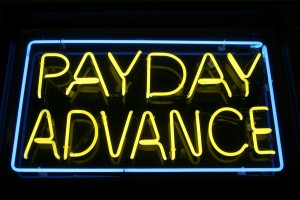All states in the US are taking strict actions against payday lenders after receiving numerous complaints from the consumers about these companies over the years. The consumer groups and civil rights activists have pulled in the support of the federal bank regulators i.e. the Federal Trade Commission and the US Department of Justice to ensure that these companies are regulated strictly. While there are different matters that are being negotiated between these companies and the regulatory authorities, the most important among those is access to consumers’ bank accounts.
Many payday lenders provide loans to consumers on the condition that consumers would allow their bank to make automatic payments at an agreed time to the lending companies. This gives these lending companies direct access to the consumers’ bank account, and often banks or payment processors are found helping these payday lenders. This allows these lenders to make illegal collections from a borrower’s bank account. It is also assumed that several of these financial groups work together to trap consumers in an ongoing cycle of high-interest debts.
In some states, payday loans are not legal at all. However, these lending companies are still providing loans to consumers in these states using online means to carry out these loan transactions. Over the years, online companies like Cash Call Inc. and Western Sky LLC have faced multiple lawsuits by attorneys and consumers on discovery that they are selling payday loans in states where it isn’t legal. In almost all the cases, these payday lenders have been restrained from collecting back loans worth millions of dollars since they knowingly took part in an illegal activity. While these companies lose millions, there is nothing they can do about it.
 In many cases, these payday lending companies have made arrangements with the American tribes assuming that this partnership will provide them immunity from the US state and federal laws. Using this point as their main argument for defense, these companies have tried to stay away from the clutches of regulatory authorities in the past. However, in the more recent cases, the US state laws have simply disregarded this factor as a valid argument, claiming that states where payday loans are illegal are right to take action against these companies.
In many cases, these payday lending companies have made arrangements with the American tribes assuming that this partnership will provide them immunity from the US state and federal laws. Using this point as their main argument for defense, these companies have tried to stay away from the clutches of regulatory authorities in the past. However, in the more recent cases, the US state laws have simply disregarded this factor as a valid argument, claiming that states where payday loans are illegal are right to take action against these companies.
All these cases have led the regulatory authorities, specifically the FTC to take strict actions against these payday lenders. However, where the illegal payment collections are concerned, the role of banks and other payment processing firms also needs to be evaluated in order to ensure consumer safety. The banks are assumed to have an obligation towards their consumers to avoid these illegal payments, no matter whether they are made to payday lenders or to gambling operations. The consumer groups state that regulating the practices of banks and payment processing institutes is one of the many traditional responsibilities of the regulation authorities.
By controlling the access these payday lenders have to consumers’ bank accounts, the consumers can be protected from falling victim to huge financial traps where they can end up losing a lot of money they don’t even owe. Providing information to the consumers about payday lenders, like the Frozen Pea Fund, that provide loans on relatively better terms can also be a step the FTC can take to protect consumers from illegal collections.



